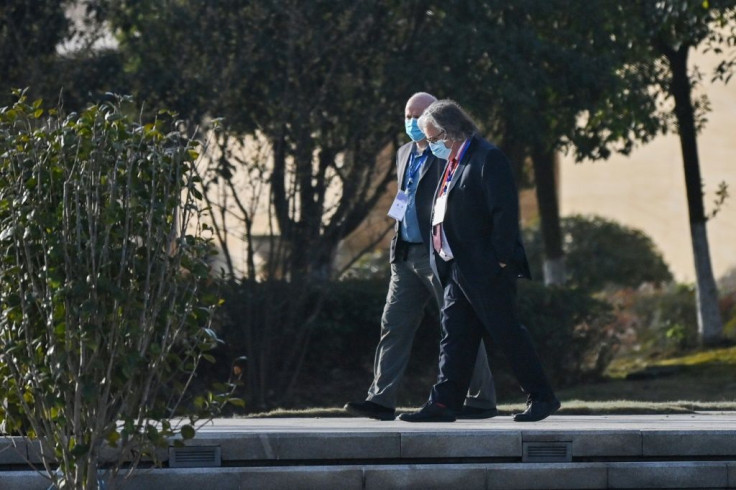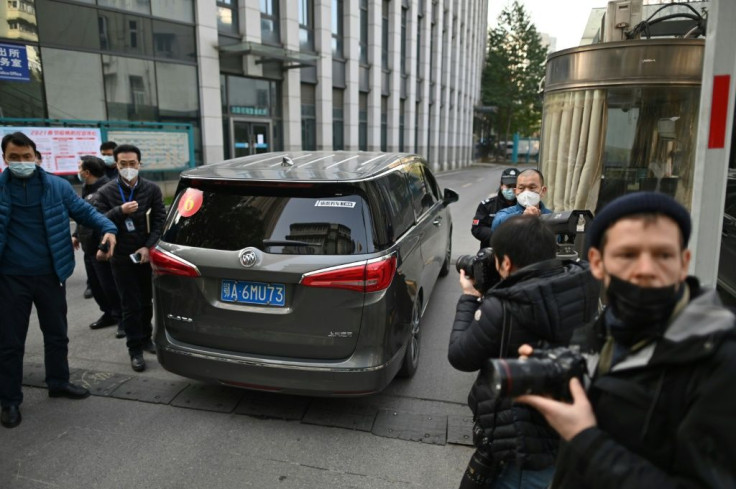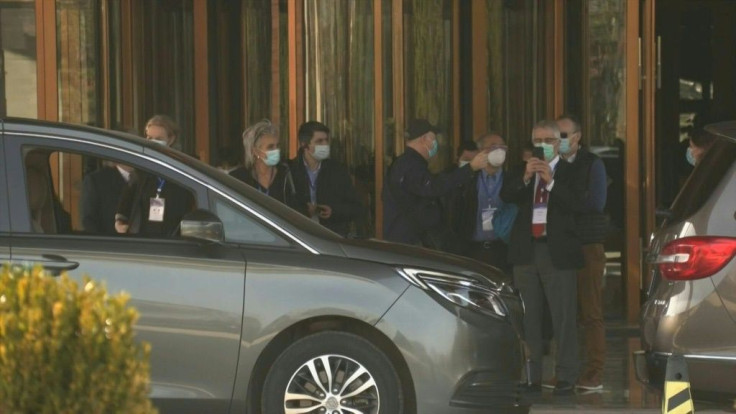WHO Virus Probe Begins With Fieldwork In Ground-zero Wuhan
Experts from the World Health Organization visited a Wuhan hospital Friday as the fieldwork began in a closely watched coronavirus origins probe that will take in a food market presumed to be "ground zero" of the pandemic.
Nevertheless, the WHO's emergencies director Michael Ryan sought to downplay expectations of finding the origin of the pandemic straight away.
Success "is not measured necessarily in absolutely finding a source on the first mission," he told a news conference in Geneva.
"This is a complicated business, but what we need to do is gather all of the data, all of the information, summarise all of these discussions, and come to an assessment as to how much more we know about the origins of the disease and what further studies may be needed to elucidate that."

The WHO investigation has been hobbled by delays, and there are fears over access and the strength of evidence a year after the virus emerged in the central Chinese city.
The team met Chinese officials Friday and then left their Wuhan hotel in a fleet of cars, trailed by a media pack reflecting the intense global scrutiny on a visit whose aim is to establish how the virus was transferred from animals to humans.
The Hubei Provincial Hospital of Integrated Chinese and Western Medicine -- where some of the earliest Covid-19 patients were admitted -- is among the field visits.
The WHO said the team will later head to the Wuhan Institute of Virology, Huanan market, and the Wuhan CDC laboratory, three sites now indelibly linked with the pandemic.

Details of the trip are being relayed via Twitter rather than Chinese authorities. Team member Peter Daszak described the first site visit as "extremely important".
"We are in the hospital that treated some of the first known cases of COVID-19, meeting with the actual clinicians & staff who did this work, having open discussion about the details of their work," tweeted Daszak, president of EcoHealth Alliance, a global NGO focused on infectious disease prevention.
The Huanan market -- which remains boarded up -- is believed to have been the first major cluster of infections, while former US president Donald Trump had pushed an unsubstantiated theory that the virus escaped from a testing facility at the Wuhan Institute of Virology.
The mission's exact itinerary remains unclear.

But WHO's Ryan said: "There is a very long list of site visits planned and face-to-face meetings continue. The visits will include the Wuhan institute of virology and other labs, the Wuhan market, early responders, hospitals in which the first clusters of cases occurred. It is a very busy, busy schedule."
The highly politicised mission had been beset by delays, with China refusing access until mid-January.
China on Thursday warned the United States against "political interference" during a trip, after the White House demanded a "robust and clear" investigation.
The WHO insists the probe will be tethered tightly to the science behind how the virus jumped to humans.
Beijing is desperate to take the air out of the blame game and instead train attention on its handling of and recovery from the outbreak.
A Chinese foreign ministry spokesman on Friday flagged the visit as "a part of global research" into the pandemic.
"It is not an investigation," Zhao Lijian told reporters.
"I asked that the international scientists get the support, access & data needed, and the chance to engage fully with their Chinese counterparts," he said.
China's National Health Commission says 4,636 people have died in the country as a result of the virus. The nation's GDP grew 2.3 percent in 2020, the only major economy to do so.
In comparison, more than 400,000 Americans have died so far as the sickness rips through its population and economy, while Britain recorded its 100,000th fatality this week.
© Copyright AFP 2024. All rights reserved.




















